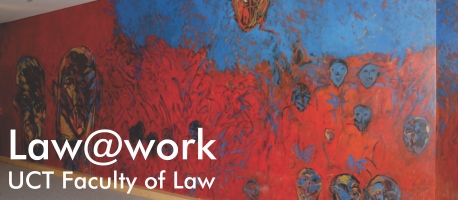
This webinar covers an overview of the practice of investigations in the U.S. and discusses applicability to South Africa.
Tokiso has performed workplace investigations throughout South Africa, and our investigators at Oppenheimer Investigations Group have performed numerous investigations and have trained hundreds of EEO investigators at organisations throughout California.
Join us for a webinar to learn more about workplace investigations
When?
17 November 2026, 16:00 to 19:00 SAST
Webinar outline
The webinar will cover:
- Introduction to workplace investigations
- What it means to be independent and reducing bias
- Determining the scope of an investigation:
- What to investigate
- When to investigate
- Nuts and bolts of the investigative process: interviewing, documenting the interviews, document collection
- Making findings
- Writing a report:
- Guidelines on writing a report (best practice)
- Discussion of South African investigation reports and the element of investigator recommendations
There will be time for Q&A after the presentation.
Who will benefit from this webinar?
- Internal and external investigators
- Human resource professionals
- Employment attorneys
Presenters
Tanya Venter is an Advocate of the High Court and CEO of Tokiso Dispute Settlement (Pty) Ltd. She has over 25 years of experience in dispute resolution, including mediation, facilitation, arbitration, investigations, and enquiries. She has overseen large dispute resolution projects in multiparty environments, including the mining, construction, professional services, and insurance industries. Tanya has deep experience and a special interest in presiding over matters concerning discrimination, fraud and corruption, particularly at an executive level. Tanya has also sat as an acting Judge in the Labour Court in Johannesburg and sits on several company boards.
Tanya is a Centre for Effective Dispute Resolution (CEDR) internationally accredited commercial mediator (UK), a member of the Institute of Commercial Forensic Practitioners (ICFP), an associate member of the Association of Certified Fraud Examiners (ACFE) and certified by the Association of Workplace Investigations (USA).
Zanele Masoek is an Attorney of the High Court of South Africa and oversees the Conflicts and Statutory Division at Tokiso Dispute Settlement (Pty) Ltd. She possesses extensive experience in dispute resolution processes, including hearings, mediations, facilitations, and investigations. Zanele also conducts training in discipline management, relationship building, conflict management and effective communication. She possesses a keen interest in matters involving discrimination, learner, and teacher disputes in schools, and facilitating solutions to mending relationship dynamics. Zanele is a Centre for Effective Dispute Resolution (CEDR) internationally accredited commercial mediator (UK), an associate member of the Association of Certified Fraud Examiners (ACFE) and certified by the Association of Workplace Investigations (USA). Zanele also sits as the Deputy Chairperson on an Independent School Board.
Vida Thomas has practiced employment law for more than 30 years and has conducted hundreds of workplace investigations. She has considerable experience investigating matters within a union setting and is particularly adept at investigating complex matters involving high-profile employers and individuals. She frequently trains attorneys, human resources professionals and EEO officers on how to conduct legally effective workplace investigations.
How much?
R1,100 per person.
How to sign up
Complete and submit the registration form. You will then be given the payment information. Please note that registrations will not be considered complete until payment has been made.
One or two days before the webinar, we will send you the Zoom link. You will need to register and use a password to enter the webinar.
Registrations close three days before the webinar.
View the advert here.

